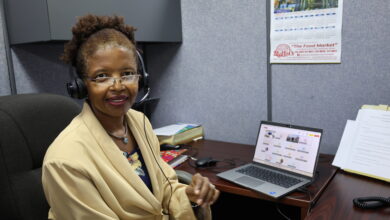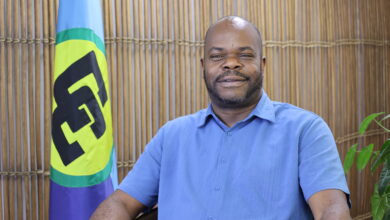|
(CARICOM Secretariat, Turkeyen, Greater Georgetown, Guyana) It is now a fait accompli. Suriname will host the 11th staging of the Caribbean premier festival of the creative and performing arts in 2013; this after their first successful hosting in 2003. Dr Hilary Brown, CARICOM Secretariat’s Programme Manager for Culture and Community Development, made this announcement at the 21st Meeting of the Regional Cultural Committee (RCC) which opened at the Courtyard Marriott in Paramaribo, Suriname on Thursday, December 1. She explained that the RCC would discuss with Suriname, plans for CARIFESTA XI, starting with logistic and promotional arrangements. “The Caribbean Community welcomes the offer of the Government of Suriname to host CARIFESTA XI in 2013 and we are all looking forward to the event with great anticipation, she stated,” noting that CARICOM was at a “crossroads in the development of this highly valued regional expose’ of Caribbean arts and culture.” The future of CARIFESTA has been uncertain since Guyana hosted, by default, CARIFESTA X in 2008, after the Bahamas expressed an inability to do so. Although it is their second time around, Suriname will host CARIFESTA XI in accordance with the new model prescribed in the CARIFESTA strategic plan developed by the RCC in 2004. According to Dr Brown, the new and improved CARIFESTA sought to address several weaknesses in the management and promotion of the event, and to ensure that it was a more dynamic, economically viable festival that met the expectations of regional and international audiences. Since 2006, attempts have been made to phase in critical elements of the new model starting with CARIFESTA IX hosted by Trinidad and Tobago. The new approach to CARIFESTA, Dr Brown explained, would provide more opportunities for professional and artistic development for the Region’s artists. It would also create a permanent management structure for the Festival and develop new income streams from the intellectual property value of the Festival through better branding and merchandising of the event. The RCC, in its two-day meeting, also reviewed the Draft Regional Development Strategy and Action Plan for the Cultural Industries in CARICOM. This strategy was fine-tuned in a meeting of the Regional Task Force on Cultural industries which preceded the RCC. That Task Force – co-chaired by Jamaica and Saint Lucia – was set up in 2008 in response to a mandate from the Joint Meeting of the Council for Trade and Economic Development (COTED) and the Council for Human and Social Development (COHSOD), to facilitate the development of a comprehensive Regional Development Strategy and Action Plan for the Region’s Cultural Industries. Dr Brown told the meeting that the Strategy was “innovative and cutting-edge … with the objectives of growing the regional creative economy by building more globally competitive cultural industries; creating an enabling environment to improve the competitiveness and productivity of the sector; and positioning the region as a cultural Mecca and preferred investment location, while preserving and projecting our cultural diversity, our national and regional identities on the global stage.” The RCC will make proposals for the Strategy’s advancement and implementation at the highest level of the Community. The Report and recommendations of the Task Force will also be discussed and acted upon by COHSOD and COTED as well as by the Council for Finance and Planning (COFAP). Several other trade related matters such as the implementation of the culture provisions of the Economic Partnership Agreement; the free movement of artists in the CSME; and the ongoing negotiations for a CARICOM-Canada Trade and Development Agreement were also ventilated. In addition, the meeting explored issues of cultural diversity and cultural heritage, as well as relations with a number of regional and international partners. The Regional Cultural Committee was established by CARICOM to advise Ministers of Culture on issues including cultural heritage, culture and trade, culture and the economy, and cultural policy. It has established itself over the past 22 years as a valuable regional forum where Directors of Culture meet, deliberate and propose harmonized or coordinated approaches to cultural development initiatives in the context of the CARICOM Single Market and Economy. |
CARIFESTACreative IndustriesCultureMemberPress ReleasesSurinameYouth Development





